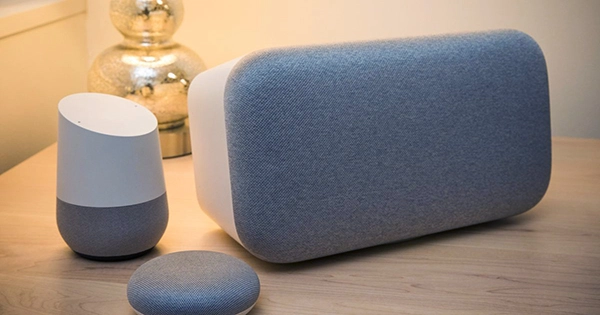Much of the buzz around the 2022 CES tech show, which is currently taking place in Las Vegas, revolves around Matter, an open-source connectivity standard designed around the belief that smart home gadgets should smoothly interface with other systems and be secure and trustworthy. According to Deloitte, 66 percent of households have smart home devices, so if you like gadgets, you are definitely one of them. We also know you do not simply buy from one firm or brand; you have probably bought from at least a half-dozen others. As a result, having Matter support will be beneficial to any manufacturer developing a smart home gadget this year.
Not only is the protocol being created by some of the biggest digital giants — think Apple, Amazon, and Google — but it’s also supposed to finally fix the flaws with fragmented smart home systems, allowing you to set up and route all of your devices from a single location. The matter is essentially the infrastructure, pipeline, and language that will allow all of the devices to communicate via a local controller device.
Its Internet Protocol will establish a specific set of IP-based networking technologies for device certification, allowing manufacturers to create products that interact with Siri, Alexa, and Google Assistant. Matter’s first protocol will use Bluetooth Low Energy for commissioning and will run on the Wi-Fi and Thread network levels. Over two dozen firms were showing or presenting Matter at their booths, meeting rooms, or remotely at CES this year, according to the Connectivity Standards Alliance, previously the Zigbee Alliance, which is organizing the testing for the first Matter-certified devices. NXP, Qualcomm, Samsung SmartThings, Telink, Texas Instruments, and Universal Electronics are among the companies involved.
Google announced in May that Matter would be coming to Android and Nest, and today it announced that you will be able to use its Android “Fast Pair” feature in a few months to quickly connect new Matter-enabled smart home devices to your home network, Google Home, and other apps with just a few clicks. Amazon also announced earlier today that its “frustration-free setup” documentation is now available for device makers to review and that it is collaborating with a number of companies on both set-up and Alexa capabilities, including adding that device as a second administrator for Matter devices so you can still control them even if your internet connection is down.
It is also working with silicon makers on what will eventually become a Matter System-on-a-Chip to help with the painless setup. All of this follows the news last year that most Echo devices will support Matter, and that 4th-generation Echo and eero devices would become Matter Thread border routers.
Schlage’s announcement on Tuesday introducing its new smart Wi-Fi deadbolt, which will be among the first to support Apple’s latest enhancement to its HomeKit experience with home keys capability, is one device Michelle Mindala-Freeman, vice president of marketing for the Connectivity Standards Alliance, is keeping an eye on. The matter will have a big year in 2022, according to her. Hundreds of companies are active in both CSA and Matter, and over 50 have already tested 134 distinct items that will be the first available at launch, according to Mindala-Freeman.
The certification, requirements, testing tools, and SDK are planned to provide by the middle of the year, according to CSA. Companies will be able to bring new hardware and technologies to market faster and reach a larger consumer base because of this. “At its most basic level, our job at CSA is to minimize fragmentation and assist businesses in growing in ways that are highly useful to customers,” Mindala-Freeman said. “We feel it is a rising tide that lifts all boats,” says Matter.
















